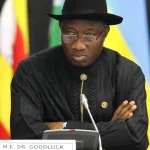
Ending military cooperation with France and other western powers will have grave security implications and create problems for the fight against terrorism, which is one of the most pressing issues in the Sahel area. Mali, Niger, and Burkina Faso are especially in danger, being the epicentre of terrorist activities and humanitarian crises.
The closure of French military bases across Mali, Chad, Niger Republic, Burkina Faso, and others will create security gaps and security challenges, most especially intelligence gathering. The 2024 GTI report has indicated that the epicentre of terrorism has shifted from the Middle East to the Central Sahel region, which now accounts for over half of all deaths from terrorism. Burkina Faso is reported to have suffered the worst impact from terrorism globally, with deaths increasing by 68% despite attacks decreasing by 17%. All these statistics point to a deteriorating security situation in the Sahel countries, requiring collective regional action and cooperation to combat the threat.
Chad serves as the headquarters of the Sahel’s regional counter-terrorism task force, making stability crucial in the lead-up to the elections. The conflict and ending military cooperation with Chad could exacerbate the refugee crisis in the region, already worsened by the Sudan crisis, a situation extremist groups could exploit to their benefit. The continuing collapse of international counterterrorism support, as well as weakening leadership in regional efforts, has created a vacuum in which violent extremism can expand. Terrorist organisations like Boko Haram, bandits, Jama’at Nusrat al-Islam wal Muslimeen, the Islamic State in the Greater Sahara, the Islamic State in the West African Province, and others have already taken advantage of that vacuum, using countries in the region as platforms to launch indiscriminate attacks on government forces and civilians alike. Other non-state actors, such as the Wagner Group, have also capitalised on the absence of foreign involvement to expand their influence. The possible convergence of security threats, including increased cooperation among terrorist organisations and between terrorist and criminal organisations, could intensify the danger those groups pose in the region and beyond.
Chad’s government said recently that it had ended its defence cooperation pact with France, a move that could see French troops leave the Central African country. In a statement, Chad’s foreign ministry said the country, a key Western ally in the fight against Islamic militants in the region, wanted to fully assert its sovereignty after more than six decades of independence. It said the decision to end the defence cooperation agreement revised in 2019 would enable it to redefine its strategic partnerships.
Chad has cooperated closely with Western nations’ military forces in the past, but it has moved closer to Russia in recent years. The decision is another nail in the coffin of France’s historic and colonial role in West and Central Africa after being forced to pull its troops out of Mali, Niger, and Burkina Faso following military coups.
The military juntas have since turned to Russia, which has mercenaries deployed across the Sahel region—a band of countries stretching from Africa’s northwest to northeast coasts—and has been fostering closer ties with Chad’s President Mahamat Deby. There were no indications that Paris had been given advance notice of the decision, although a French envoy to President Emmanuel Macron last week handed in a report with proposals on how France could reduce its military presence in Chad, Gabon, and Ivory Coast, where it has deployed thousands of troops for decades. France has around 1,000 troops as well as warplanes stationed in Chad.
In a further blow to France, Senegal’s President Bassirou Diomaye Faye said in an interview with French state TV on Thursday that it was inappropriate for French troops to maintain a presence in his country. He stopped short of saying if or when French troops would be asked to leave, but he said Paris would be the first to know. Around 350 French troops are based in Senegal.
The wave of anti-French sentiment sweeping across the Sahel has affected Burkina Faso, Chad, Mali, Senegal, and Guinea-Conakry as well since the military takeover of government there and will likely threaten the French military presence in no small way. While French military outposts in African countries—particularly the former colonies—became visible recently on account of the Niger coup, those of other Western countries elsewhere are likely to attract more attention in the near future for obvious reasons, as they are suspected of ripping up African countries under the false pretence of maintaining security.
Russia’s incursion through military support in some African countries takes the form of interventions in crisis-ridden areas such as the Central African Republic, Chad, Sudan, Mozambique, Mali, Burkina Faso, and Niger. Wagner, the mercenary group under which Russia operates as a tactic for circumventing rule-based approaches and avoiding scrutiny and official accountability, has been under the leadership of Yevgeny Prigozhin, who reportedly died in a plane crash near Moscow after a trip to Africa. Following the military takeover of power in the Republic of Niger, the military leaders announced the imminent exit of the 1,500 French soldiers stationed in the country. The US soldiers were not spared. The coup raised questions over whether the US can continue the 1100-strong military presence in the country. In the aftermath of the two coups in Mali in 2020 and 2021, the military leaders indicated that all 2,400 French troops in Mali should leave. Out of the total of over 5,000 French soldiers stationed in the Sahel, deployed in Mali, Niger, Chad, Burkina Faso, and Mauritania on the mission codenamed Operation Barkhane, the last unit of those deployed to Mali crossed into neighbouring Niger in August 2022, after major fallout with Malian soldiers in power. That ended nine years of the presence of the French troops, ostensibly to maintain regional security. It was obviously a failed mission in terms of benefits to Mali. It could have been the opposite for France, as subsequent events might prove.
Chad is a key link in France’s military presence in Africa, constituting Paris’s last foothold in the Sahel after the forced withdrawal of its troops from Mali, Burkina Faso, and Niger. It has been led by Deby since 2021, when his father, Idriss Deby Itno, was killed by rebels after 30 years in power.
The elder Deby frequently relied on French military support to fend off rebel offensives, including in 2008 and 2019. The landlocked nation faces a potent threat from Boko Haram and other militant groups. It borders the Central African Republic, Sudan, Libya, and Niger, all of which host Russian paramilitary forces from the Wagner group.
Chad, in accordance with the provisions of the agreement, undertakes to respect the terms laid down for its termination, including the notice period,” he said in the statement, which did not give a date for the withdrawal of French troops.
•Inwalomhe Donald writes via [email protected]om



